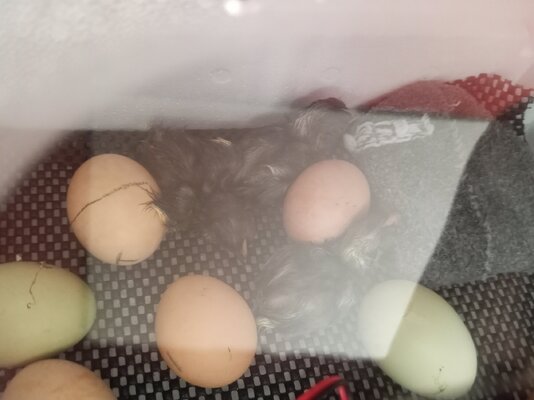4th generation farmer
Chirping
- Jul 18, 2021
- 42
- 44
- 74
Ok I have posted several times during this incubation process...I decided to dry hatch 18 eggs from my layer flock...humidity stayed between 22% and 26% the entire time..twmp stayed between 99.5 and 100 degrees entire time.
lock down was spose to start today but hubby started it yesterday temp stayed 99.5 and 100 and humidity was up to 80% since and 3 days till hatch and I've got 3 chick's fully hatched today and 4 more pipping...is this normal with dry hatch to hatch early...or is it due to dry hatching then doing 80% humidity a day early and starting lock down a day early
lock down was spose to start today but hubby started it yesterday temp stayed 99.5 and 100 and humidity was up to 80% since and 3 days till hatch and I've got 3 chick's fully hatched today and 4 more pipping...is this normal with dry hatch to hatch early...or is it due to dry hatching then doing 80% humidity a day early and starting lock down a day early




